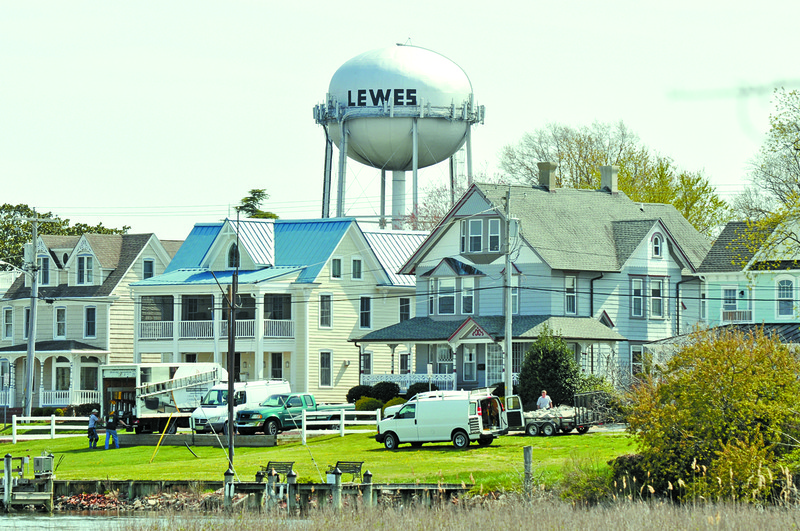Lewes Board of Public Works General Manager Darrin Gordon is proposing his department move into the 21st Century by replacing many of the city's meters with wireless counterparts.
By going wireless, the city would no longer need to send an employee out to each individual meter to get a reading. Gordon says he is trying to coordinate the switchover with an employee's retirement, so as to not eliminate a job. If the BPW moves forward, Gordon said, he'd likely hire a new employee to replace the retiring one, but use the new worker in a different capacity.
“We're still going to need a meter reader that makes this function, but instead of a meter reader that's reading all month long, we can condense that down into days,” Gordon said. “Then that person is now available to be used [elsewhere].”
To design and implement the system, Gordon offered BPW directors with two proposals. The first option would be to put a repeater on the city's water tower. By doing so, the BPW would be able to tap into the state's expanded fiber-optic network and use that to read all the meters simultaneously. BPW staff have been upgrading meters that are compatible in recent years.
In May, Gov. Jack Markell announced the expansion of the state's broadband internet, adding 36 miles of fiber-optics to its network to expand from Georgetown to Lewes and from Georgetown to Seaford. The network growth is part of Markell's emphasis on the importance of broadband access in today's economy.
For an additional cost, the BPW could offer Wi-Fi service to the community. For even more of an expense, high-speed wireless could be incorporated with receivers on homes to pull in the signal.
“We would have to do some research,” Gordon said. “If there's no demand from the public, we wouldn't provide it.”
The proposal is estimated at about $200,000, with an additional $100,000 for Wi-Fi.
The second proposal Gordon offered directors was for a mesh metering approach, meaning a broadcaster would be placed about every third meter in the community. When the system is activated each month, the broadcasters communicate with each other and read all the meters in the vicinity and send the information to the office. That proposal is estimated about $100,000 to $200,000.
Companies offering the services have implemented their systems into communities in the Mid-Atlantic region, and each have invited BPW directors to visit the sites. BPW President Wendell Alfred said he intends to take up those offers.
BPW member Nancy Levinson asked Gordon to further explore other options.
“There are a lot of providers and we'd want to look at alternative providers to make sure we go with the one who does it the best,” she said.
Levinson also asked Gordon to research the security provided for each proposal to avoid hacking.




















































